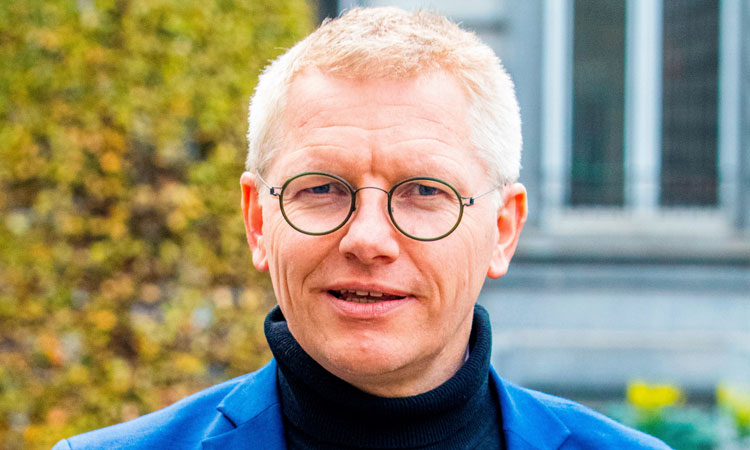Our trains will also undergo qualitative improvements, offering customers an even more comfortable travel experience.
Our trains will also undergo qualitative improvements, offering customers an even more comfortable travel experience. Our stations will be clean, safe, and welcoming for all; especially those with reduced mobility. There will be places for bicycles on trains and around train stations, and more availability within carparks. In the future, Belgians will be even more eager to take the train.
We are also ensuring the funding of our ambitions; the Belgian Federal Government has guaranteed the financing of our two public railway companies, SNCB-NMBS and Infrabel, for the next 10 years, with a commitment (in constant euros) of €44 billion, a significant increase compared with the past. To accelerate the upgrading of the infrastructure , a €1 billion loan is being concluded with the European Investment Bank (EIB), which will allow us to finalise the work on the RER (Brussels Regional Express Network), strengthen the infrastructure of our ports and improve the accessibility of our stations. In total, we will have increased the allocation for rail by 9% for the period 2023-2032.
Furthermore, after a 10-year wait, the State has concluded new ‘management contracts’ for 10 years with SNCB-NMBS and Infrabel, paving the way for a clear roadmap with budgets on the table.
Of course, it will take time to ‘turn the tide’, but change is already in the air. In fact, Belgians are positively talking about the latest announcements from SNCB-NMBS concerning its new schedules and services for the next three years. An example of the improvements people are talking about: on Fridays into Saturdays, the last train to Ottignies (a university town about 30km from Brussels) will leave from the Central Station at 01:46am instead of 10:46pm, and from Saturdays into Sundays, it will leave at 01:52am instead of 10:52pm.
…our ambitions also relate to rail freight. We have a ‘Goods Plan’ comprising 26 specific actions, some of which have already been implemented.
My passion for trains is not only sentimental but fuelled by perfectly rational arguments, integrated into a global approach. It is about actively fighting climate change and helping Belgium meet its commitment to reduce its CO2 emissions by 55% by 2030, reducing our dependence on fossil fuels, accelerating the energy transition, and contributing to our energy independence and world peace.
It is about taking care of our health and keeping us safe on the roads. It is also a question of participating in the economic transformation of our country and in the creation of tomorrow’s jobs: €1 invested in rail brings €3 to our economy, in direct and indirect benefits. That is why our ambitions also relate to rail freight. We have a ‘Goods Plan’ comprising 26 specific actions, some of which have already been implemented. For one freight train on the tracks, there are 50 trucks that are not on the road.
Furthermore, I am very keen on supporting and developing night trains in Europe; such a pleasant and safe way to travel, and, in particular, a great alternative to short‑haul flights, which are an ecological and economic absurdity. We already have night trains from Brussels to Vienna, but a connection with Berlin will start soon. Belgium is the first European country to have (on my initiative) a legal framework supporting night train operators.
The Belgian Government has set itself ambitious objectives, which I am committed to achieving. We wish to double the volume of freight transported by rail by 2030, and we wish to double the role of trains in mobility from 8% to 15% by 2040. Thanks to the mobilisation of all the actors involved, both rail workers and economic operators, trains are back on track: they will attract new customers, especially among current car commuters, but also and above all in future generations, those for whom we must safeguard our planet. The train really is a major lever in achieving this!





